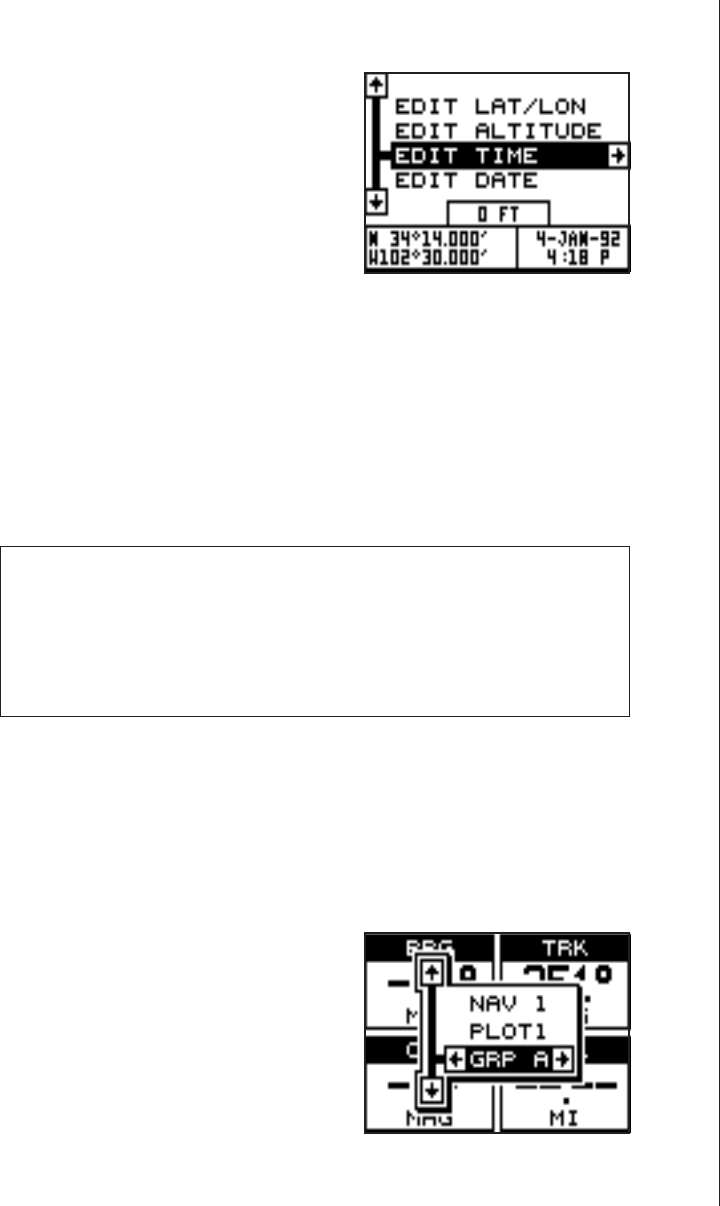
11
Now change the local time and date if
they’re incorrect on this screen. (Don’t
worry about altitude.) When everything
is acceptable, press the EXIT key repeat-
edly to return to a mode screen. The
GlobalNav 310 will instantly use the data
you entered to find the satellites in the
sky. (The unit knows which satellites will
be available at the position, date, and
time you entered. Therefore, it will only
look for those satellites, making the search time much shorter than a
cold start which looks for all of the satellites until it finds three.)
Once the GlobalNav 310 finds and locks on to three satellites, it stops
flashing the numbers on the display. (Note: Altitude will still flash until the
unit locks on to the fourth satellite. It takes four satellites to determine
altitude.)
IMPORTANT!
If the data shown in digital numbers on any screen is flashing, it
means that data is invalid. DO NOT RELY ON ANY NUMBERS THAT
ARE FLASHING! Usually, this happens when the GlobalNav 310
has lost its lock on the satellites. The data that is flashing was the
last known when the unit lost its navigational capability.
DO NOT NAVIGATE WITH THIS UNIT UNTIL THE DATA STOPS
FLASHING!
POSITION/NAVIGATION DISPLAYS
The GlobalNav 310 has navigation, plotter, and windows group modes.
These screens were designed to show
data that is used most often.
The three default displays are shown on
the next page. To change displays, sim-
ply press the MODE key. A screen simi-
lar to the one at right appears. Now press
the up or down arrow keys to change
modes. (The windows display is shown


















